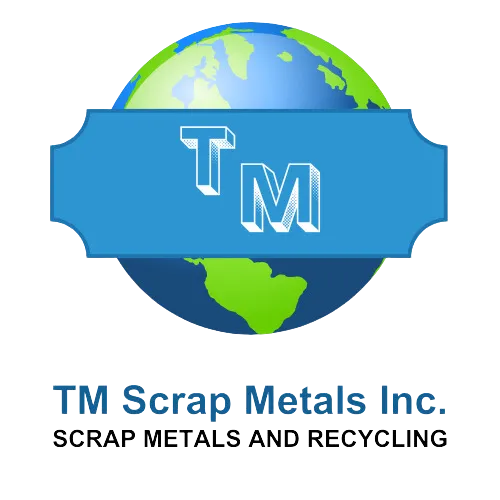Sponsored:
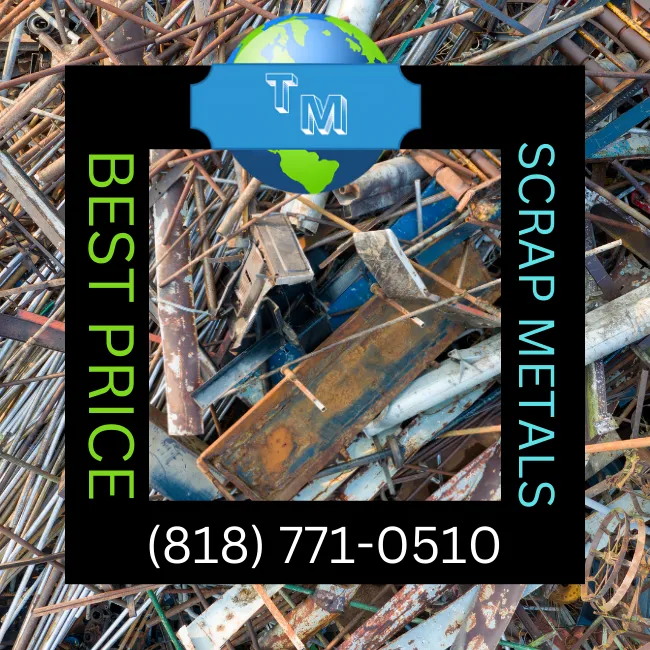
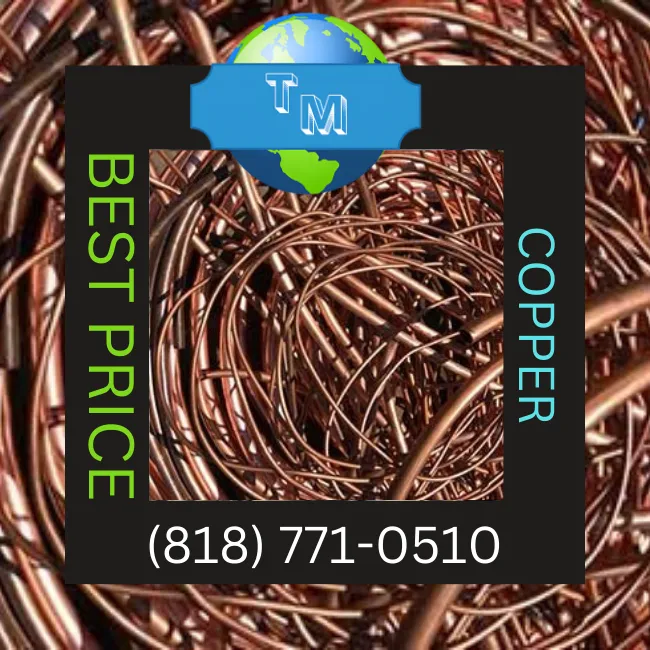
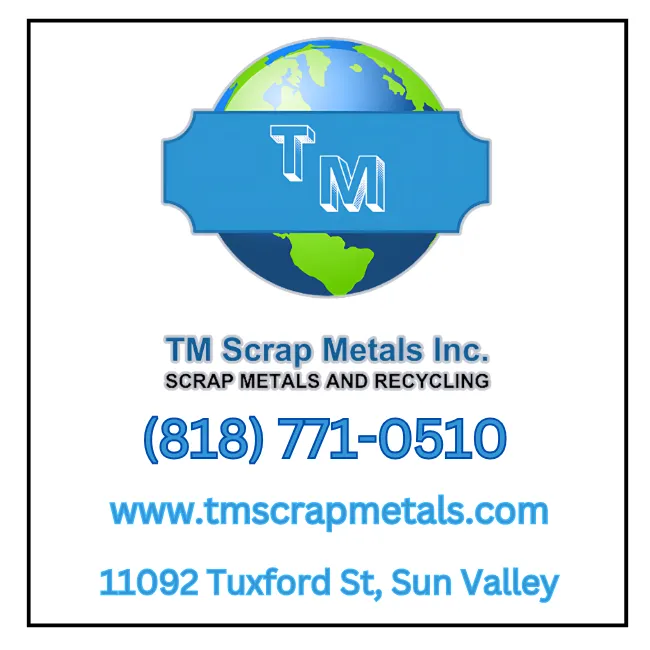
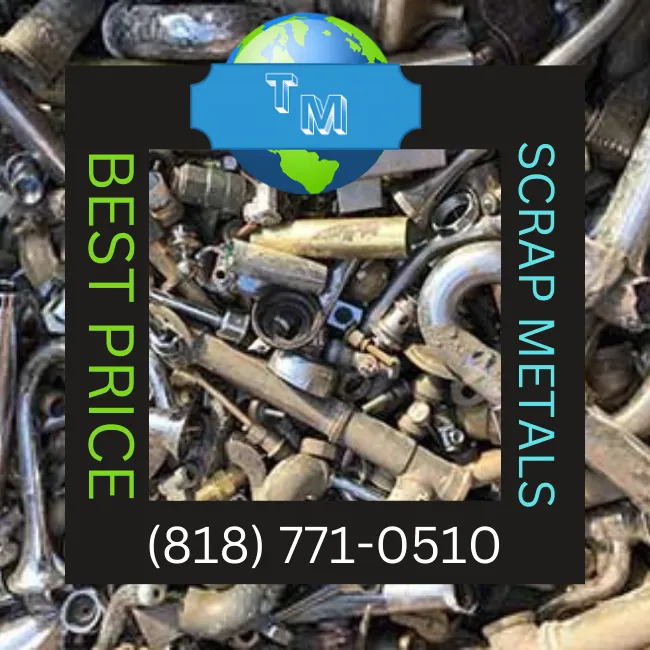
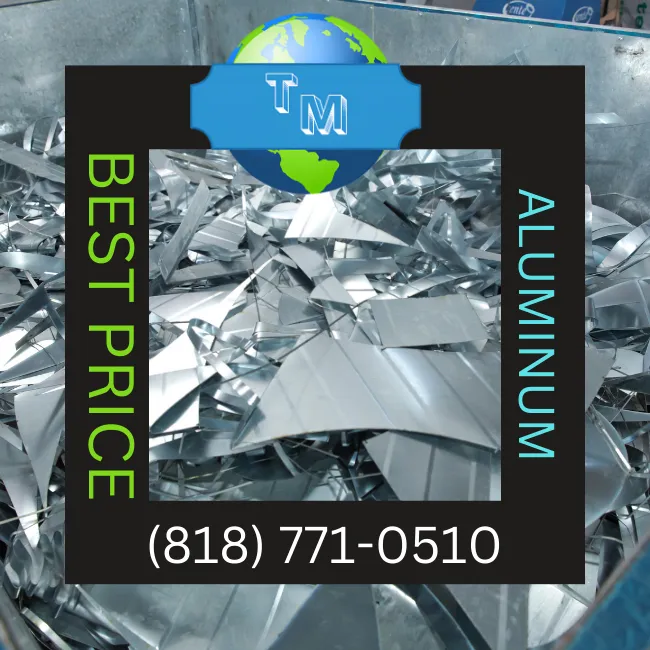
BEST SCRAP METALS PRICES NEAR SUN VALLEY, CA
Effortless Recycling Starts Here: Connect with Sun Valley’s Top Scrap Metal Recycling Centers
Looking for reliable scrap metal services in Sun Valley, CA? The top 5 scrap metal companies in the area are ready to help you manage your recycling needs efficiently! With extensive industry expertise and tailored solutions, these companies are committed to providing seamless service for all your scrap metal needs. Their knowledgeable teams understand the local market and offer competitive prices for your metals. Whether you’re clearing out a construction site, handling industrial waste, or simply recycling household metals, these professionals ensure a hassle-free experience from collection to processing. Don’t compromise on quality—reach out to one of these top scrap metal companies in Sun Valley today and make the most of your metal resources!
Maximize Your Scrap Metal Prices Near Sun Valley: The Ultimate Guide to Recycling Success
Discover Where to Take Your Scrap Metal, How to Prepare It, and Tips to Boost Your Earnings While Helping the Environment
When you’ve accumulated scrap metal—whether from a home renovation, a construction project, or just cleaning out the garage—you might find yourself asking, “Where can I take my scrap metal?” Disposing of scrap metal responsibly is important not only for decluttering your space but also for contributing to environmental sustainability. However, finding the right place to take your scrap metal can be confusing, especially if you’re unfamiliar with the recycling process. This guide will walk you through everything you need to know about where to take your scrap metal, ensuring that you make the most out of your efforts.
Understanding the Importance of Recycling Scrap Metal
Before diving into where you can take your scrap metal, it’s essential to understand why recycling it is so important. Scrap metal recycling is a crucial aspect of conserving natural resources, reducing waste, and minimizing environmental impact. Metals like aluminum, copper, steel, and brass can be recycled indefinitely without losing their properties. By recycling scrap metal, you reduce the need for mining, lower greenhouse gas emissions, and save energy. It’s a win-win situation for both you and the planet.
TM Scrap Metals, Inc
Recycling Center

Google: 4.8 stars
Ferrous Metals Recycling, Non-Ferrous Metals Recycling
(818) 771-0510
11092 Tuxford St, Sun Valley, CA 91352
Website: www.tmscrapmetals.com

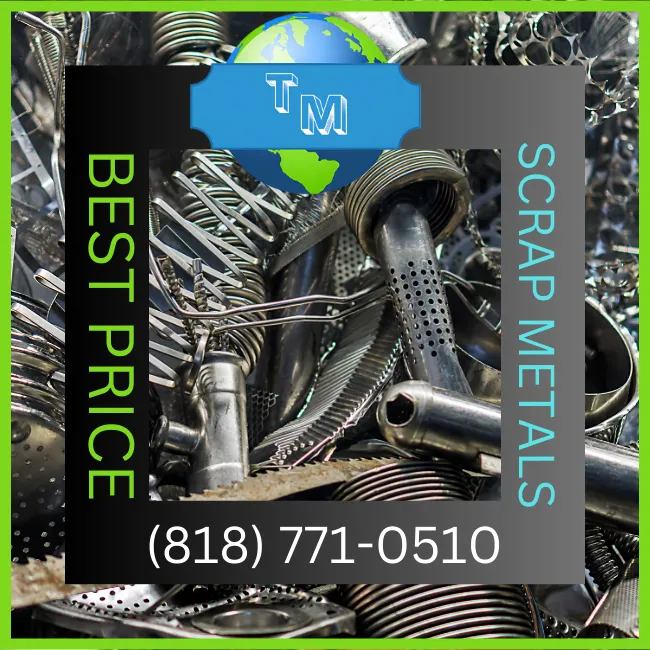
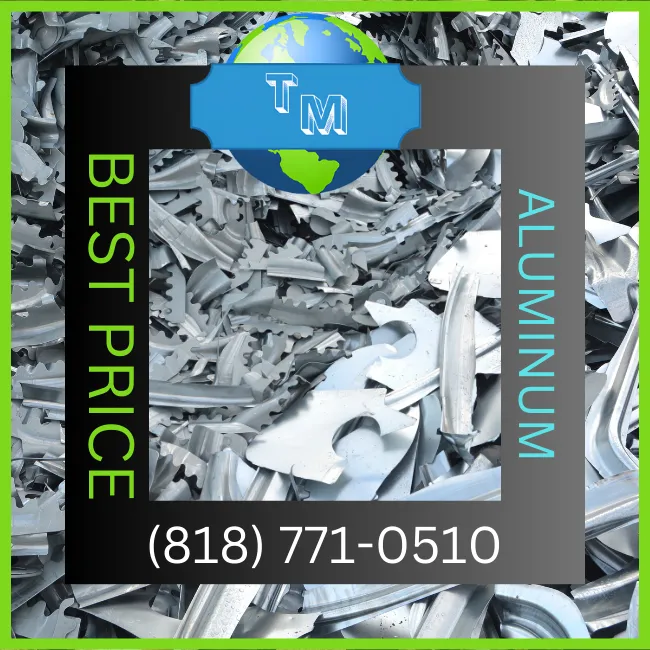

Types of Scrap Metal You Can Recycle
The first step in recycling scrap metal is identifying what types of metals you have. Most scrap yards and recycling centers accept a wide variety of metals, but it’s helpful to know the common categories. Ferrous metals, like iron and steel, are magnetic and often used in construction materials and appliances. Non-ferrous metals include aluminum, copper, brass, and stainless steel. These are typically more valuable and are commonly found in items like wiring, pipes, and electronics. Additionally, precious metals like gold, silver, and platinum can also be recycled, though they are less common.
Preparing Your Scrap Metal for Recycling
Before taking your scrap metal to a recycling center, it’s important to prepare it properly. This not only makes it easier for the recycling center to process but can also increase the value of your scrap. Start by sorting your metals into different categories—ferrous, non-ferrous, and precious metals. Cleaning the metal to remove any dirt, grease, or non-metallic materials is also beneficial. For example, if you have aluminum cans, rinsing them out and removing any labels can make them more attractive to buyers. Stripping insulation from copper wires or removing screws and nails from steel can also help.
Crown Recycling Services
Google: 4.0 stars
Services: Construction & demolition recycling, wood and yard waste recycling
📞 (818) 768-4214
📍 9189 De Garmo Ave, Sun Valley, CA 91352
🌐 Website not listed
Ecology Auto Parts, Inc.
Google: 4.2 stars
Services: Auto parts recycling, metal recycling, tire recycling
📞 (818) 767-8336
📍 14036 Balboa Blvd, Sun Valley, CA 91352
Where to Take Your Scrap Metal: Options to Consider
When it comes to deciding where to take your scrap metal, you have several options, each with its own set of advantages. The most common options include:
Local Recycling Centers: These facilities are designed to handle a wide range of recyclable materials, including scrap metal. They typically accept both ferrous and non-ferrous metals and may offer payment based on the weight and type of metal you bring in.
Scrap Yards: Scrap yards specialize in buying and processing scrap metal. They usually offer better prices for scrap metals, especially non-ferrous types like copper and aluminum. Many scrap yards will weigh your materials and pay you on the spot.
Curbside Recycling Programs: In some areas, local municipalities offer curbside pickup for certain types of scrap metal, like aluminum cans or small appliances. While convenient, these programs may offer lower returns compared to taking your scrap directly to a recycling center or scrap yard.
Drop-Off Bins at Retail Stores: Some large retailers offer drop-off bins for recycling metal items like electronics, batteries, or small appliances. This option is convenient if you’re recycling smaller quantities of metal and want to avoid a trip to the scrap yard.
Community Recycling Events: Many communities host recycling events where you can bring in a variety of materials, including scrap metal, for recycling. These events are often free and can be a great way to recycle larger items like old appliances.
SA Recycling
Google: 4.2 stars
Services: Scrap metal recycling, ferrous and non-ferrous metal recycling, electronic waste recycling, metal processing
📞 (818) 504-4140
📍 8250 Tujunga Ave, Sun Valley, CA 91352
Kramar Metals
Google: 4.5 stars
Services: Scrap metal recycling, industrial scrap metal recycling, metal processing, buying and selling of various metals
📞 (818) 767-4303
📍 8821 San Fernando Rd, Sun Valley, CA 91352
Factors to Consider When Choosing a Recycling Location
When deciding where to take your scrap metal, there are several factors to consider. Proximity is often a key factor; the closer the facility, the less time and fuel you’ll spend transporting your materials. However, it’s also important to consider price—different facilities may offer different rates for the same type of metal. Additionally, some facilities may have minimum quantity requirements or specific material restrictions, so it’s worth calling ahead to confirm what they accept. Finally, consider the facility’s reputation and practices; you’ll want to ensure that your scrap metal is being processed responsibly and ethically.
Maximizing the Value of Your Scrap Metal
If you’re looking to get the most value from your scrap metal, there are a few tips to keep in mind. First, separate your metals—different metals have different values, and separating them before you arrive at the recycling center can save time and ensure you get paid correctly. Monitor market prices for metals like copper and aluminum; prices can fluctuate based on global demand, so timing your sale when prices are high can increase your returns. Lastly, build relationships with local scrap yards or recycling centers—repeat customers may receive better rates or faster service.
Environmental and Economic Benefits of Recycling Scrap Metal
Recycling scrap metal isn’t just about making some extra cash—it also has significant environmental and economic benefits. Recycling metal saves up to 90% of the energy required to produce new metal from raw materials. It also reduces the demand for mining, which can have harmful environmental impacts. Economically, the scrap metal recycling industry provides jobs and contributes to the local economy. By recycling your scrap metal, you’re playing a part in a larger effort to conserve resources, reduce pollution, and support sustainable practices.
Common Mistakes to Avoid When Recycling Scrap Metal
While recycling scrap metal is generally straightforward, there are a few common mistakes that can reduce your returns or cause headaches. One common mistake is mixing metals—scrap yards prefer metals to be sorted, and mixing them can result in a lower overall price. Another mistake is failing to check for non-metallic components like plastic, wood, or rubber, which can be attached to metal items. These materials can complicate the recycling process and may need to be removed before recycling. Additionally, not researching local regulations can lead to issues, as some areas have specific rules regarding scrap metal recycling, especially for items like electronics or vehicles.
Legal Considerations and Documentation
In some regions, there are legal considerations to keep in mind when recycling scrap metal. For instance, selling certain types of scrap metal, like copper wiring, may require documentation to prove ownership. This is especially true in areas with laws aimed at preventing metal theft. Be prepared to provide identification and, in some cases, proof of where the metal came from. Additionally, some areas may have restrictions on the amount of metal you can recycle at one time or specific reporting requirements for large transactions.
People Also Ask
Sun Valley, CA: The Heart of Scrap Metal Recycling
The History and Evolution of Sun Valley
Sun Valley has a rich history that dates back to the early 20th century. Originally an agricultural area, it evolved into a hub for industrial activities as Los Angeles expanded. The post-World War II boom brought a surge of manufacturing and industrial businesses to Sun Valley, laying the groundwork for the community’s future as a center for scrap metal recycling.
Today, Sun Valley is a bustling urban area with a mix of residential, commercial, and industrial zones. Its industrial areas are home to numerous scrap metal recycling facilities, making it a go-to destination for businesses and individuals looking to recycle their metal waste.
The Importance of Scrap Metal Recycling in Sun Valley
Scrap metal recycling is not just a business in Sun Valley—it’s an essential part of the local economy and the broader effort to promote environmental sustainability. The recycling of scrap metal reduces the need for mining new metals, conserves natural resources, and lowers greenhouse gas emissions. Given the global demand for metals, recycling also helps stabilize prices and supply.
In Sun Valley, the scrap metal industry provides jobs, supports local businesses, and plays a crucial role in waste management. The area’s recycling facilities process thousands of tons of metal each year, turning what would otherwise be waste into valuable resources. This industry’s success in Sun Valley has also fostered a community that understands and values the importance of recycling.
Types of Scrap Metals Commonly Recycled in Sun Valley
- Aluminum: Widely used in packaging, transportation, and construction, aluminum is one of the most recycled metals in Sun Valley. It’s lightweight, corrosion-resistant, and can be recycled indefinitely without losing its properties.
- Copper: Known for its excellent conductivity, copper is highly sought after in the scrap metal industry. It’s commonly found in electrical wiring, plumbing, and electronics.
- Steel: A primary material in construction and manufacturing, steel is the most recycled material in the world. Sun Valley’s facilities process vast amounts of steel, from old vehicles to construction debris.
- Brass: This alloy of copper and zinc is commonly found in plumbing fixtures, radiators, and musical instruments. Brass is valued for its durability and resistance to corrosion.
- Lead: Often used in batteries and radiation shielding, lead is a toxic metal that must be recycled responsibly. Sun Valley’s recycling centers ensure that lead is handled and processed safely.
- Stainless Steel: This corrosion-resistant metal is used in a variety of applications, from kitchen appliances to medical instruments. It’s another common material processed in Sun Valley’s recycling facilities.
The Process of Scrap Metal Recycling in Sun Valley
The process of recycling scrap metal in Sun Valley is both efficient and environmentally friendly. It typically involves several key steps:
- Collection: Scrap metal is collected from various sources, including households, businesses, and construction sites. Many recycling centers in Sun Valley offer pick-up services, making it easy for residents and businesses to recycle their metal waste.
- Sorting: Once the metal arrives at the recycling facility, it is sorted into different categories based on type and quality. This step is crucial for ensuring that the metal is processed correctly and efficiently.
- Processing: After sorting, the metal is processed to remove any non-metallic materials, such as plastic, rubber, or wood. This often involves shredding the metal into smaller pieces to make it easier to handle.
- Melting: The shredded metal is then melted down in large furnaces. The melting process is carefully controlled to ensure that the metal is pure and free of contaminants.
- Purification: In some cases, the melted metal is purified to remove any remaining impurities. This step is especially important for metals that will be used in sensitive applications, such as electronics or medical equipment.
- Solidification: Once purified, the molten metal is poured into molds to create ingots, sheets, or other forms that can be used in manufacturing. These recycled metals are then sold to manufacturers, who use them to create new products.
Environmental Impact of Scrap Metal Recycling
Recycling scrap metal in Sun Valley has a significant positive impact on the environment. By recycling metals, the need for mining raw materials is reduced, which in turn decreases the destruction of natural habitats, lowers energy consumption, and minimizes pollution. The recycling process itself uses less energy compared to producing new metals from ore, resulting in a smaller carbon footprint.
Additionally, recycling scrap metals helps reduce the amount of waste sent to landfills. Metals take a long time to decompose, and by recycling them, Sun Valley helps reduce the environmental strain of waste management.
Economic Benefits of Scrap Metal Recycling
The scrap metal recycling industry in Sun Valley is not just environmentally beneficial—it also brings substantial economic advantages. The industry creates jobs at various levels, from collection and processing to sales and management. This contributes to the local economy by providing employment opportunities and stimulating business growth.
Moreover, recycling metals allows businesses to save on raw material costs. Recycled metals are often cheaper than newly mined ones, which helps manufacturers reduce production costs. This cost-saving advantage can be passed on to consumers, making products more affordable.
Challenges Faced by the Scrap Metal Industry
Despite its benefits, the scrap metal industry in Sun Valley faces several challenges. One of the main issues is the fluctuation in metal prices, which can affect the profitability of recycling operations. Additionally, the industry must deal with the improper disposal of non-recyclable materials, which can contaminate the recycling process and increase operational costs.
Another challenge is the need for continuous investment in technology and infrastructure. As environmental regulations become stricter, recycling facilities must upgrade their equipment and processes to meet these standards. This requires significant financial investment, which can be a burden for smaller businesses.
The Future of Scrap Metal Recycling in Sun Valley
Looking ahead, the future of scrap metal recycling in Sun Valley appears promising. As awareness of environmental issues continues to grow, so does the demand for sustainable practices like recycling. Technological advancements are also expected to play a key role in improving the efficiency and effectiveness of recycling processes.
In addition, the increasing global demand for metals, driven by industries such as construction, automotive, and electronics, will likely boost the scrap metal industry. Sun Valley, with its established recycling infrastructure, is well-positioned to meet this demand and continue its legacy as a leader in scrap metal recycling.
Conclusion
Sun Valley, CA, has established itself as a vital center for scrap metal recycling, contributing significantly to environmental sustainability and the local economy. Despite the challenges it faces, the industry’s future looks bright, with ongoing advancements in technology and an increasing emphasis on recycling. For residents and businesses alike, Sun Valley remains a beacon of responsible waste management and resource conservation.
References: Wikipedia

